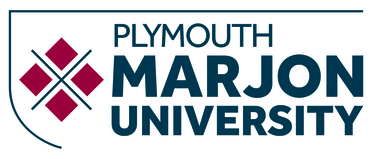Acclimation training improves endurance cycling performance in the heat without inducing endotoxemia
Guy, Joshua, Pyne, David B., Deakin, Glen, Miller, Catherine M. and Edwards, Andrew M. (2016) Acclimation training improves endurance cycling performance in the heat without inducing endotoxemia. Frontiers in Physiology, 7 (318). ISSN 1664-042X
|
Text
206273_Edwards_ProvisionalPDF.pdf - Accepted Version Available under License Creative Commons Attribution. Download (841kB) | Preview |
Abstract
Purpose: While the intention of endurance athletes undertaking short term heat training protocols is to rapidly gain meaningful physical adaption prior to competition in the heat, it is currently unclear whether or not this process also presents an overt, acute challenge to the immune system. The aim of this study was therefore to examine the effects of heat training on both endurance performance and biomarkers associated with inflammatory and immune system responses. Methods: Moderately-actively males (n=24) were allocated randomly to either HOT (n=8, 35oC and 70% RH; NEUTRAL (n=8, 20oC and 45% RH); or a non-exercising control group, (CON, n=8). Over the 18 day study HOT and NEUTRAL performed seven training sessions (40 min cycling at 55% of V̇O2 max) and all participants completed three heat stress tests (HST) at 35oC and 70% RH. The HST protocol comprised three x sub-maximal intervals followed by a 5 km time trial on a cycle ergometer. Serum samples were collected before and after each HST and analysed for interleukin-6, immunoglobulin M and lipopolysaccharide. Results: Both HOT and NEUTRAL groups experienced substantial improvement to 5 km time trial performance (HOT -33 ± 20 s, p = 0.02, NEUTRAL -39 ± 18 s, p = 0.01) but only HOT were faster (-45 ± 25 s and -12 s ± 7 s, p = 0.01) in HST3 compared to baseline and HST2. Interleukin-6 was elevated after exercise for all groups however there were no significant changes for immunoglobulin M or lipopolysaccharide. Conclusions: Short-term heat training enhances 5 km cycling time trial performance in moderately-fit subjects by ~6%, similar in magnitude to exercise training in neutral conditions. Three top-up training sessions yielded a further 3% improvement in performance for the HOT group. Furthermore, the heat training did not pose a substantial challenge to the immune system.
| Item Type: | Article |
|---|---|
| Keywords: | Cycling, Heat acclimation, Inflammation, Lipopolysacharide, cytokine, endurance performance |
| Divisions: | ?? UniversityCollegePlymouthMarkJohn ?? |
| Depositing User: | Users 134 not found. |
| Date Deposited: | 25 Jul 2016 12:41 |
| Last Modified: | 04 Jun 2025 14:34 |
| URI: | https://marjon.repository.guildhe.ac.uk/id/eprint/9324 |
Actions (login required)
 |
Edit Item |

